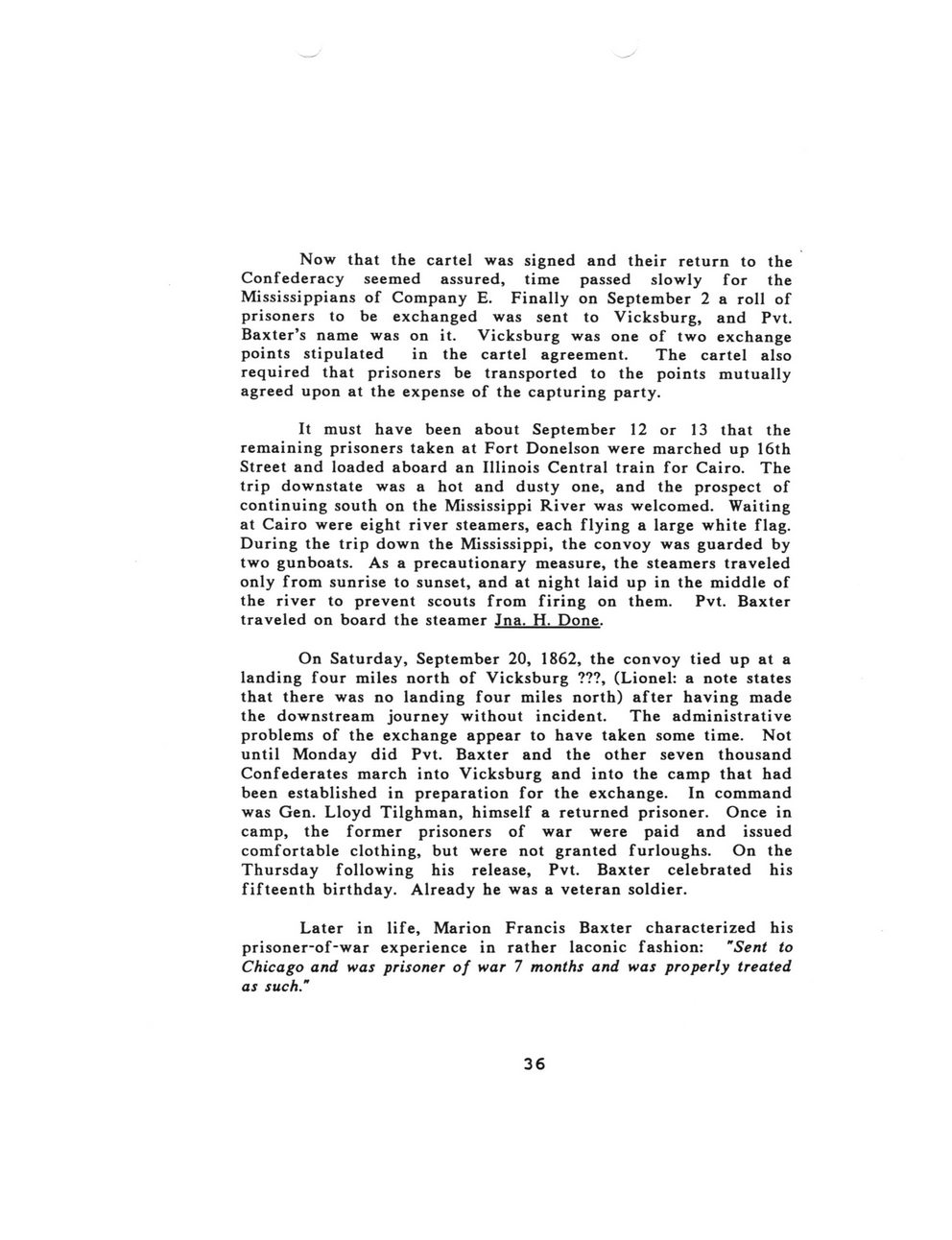This text was obtained via automated optical character recognition.
It has not been edited and may therefore contain several errors.
Now that the cartel was signed and their return to the Confederacy seemed assured, time passed slowly for the Mississippians of Company E. Finally on September 2 a roll of prisoners to be exchanged was sent to Vicksburg, and Pvt. Baxter?s name was on it. Vicksburg was one of two exchange points stipulated in the cartel agreement. The cartel also required that prisoners be transported to the points mutually agreed upon at the expense of the capturing party. It must have been about September 12 or 13 that the remaining prisoners taken at Fort Donelson were marched up 16th Street and loaded aboard an Illinois Central train for Cairo. The trip downstate was a hot and dusty one, and the prospect of continuing south on the Mississippi River was welcomed. Waiting at Cairo were eight river steamers, each flying a large white flag. During the trip down the Mississippi, the convoy was guarded by two gunboats. As a precautionary measure, the steamers traveled only from sunrise to sunset, and at night laid up in the middle of the river to prevent scouts from firing on them. Pvt. Baxter traveled on board the steamer Jna. H. Done. On Saturday, September 20, 1862, the convoy tied up at a landing four miles north of Vicksburg ???, (Lionel: a note states that there was no landing four miles north) after having made the downstream journey without incident. The administrative problems of the exchange appear to have taken some time. Not until Monday did Pvt. Baxter and the other seven thousand Confederates march into Vicksburg and into the camp that had been established in preparation for the exchange. In command was Gen. Lloyd Tilghman, himself a returned prisoner. Once in camp, the former prisoners of war were paid and issued comfortable clothing, but were not granted furloughs. On the Thursday following his release, Pvt. Baxter celebrated his fifteenth birthday. Already he was a veteran soldier. Later in life, Marion Francis Baxter characterized his prisoner-of-war experience in rather laconic fashion: "Sent to Chicago and was prisoner of war 7 months and was properly treated as such." 36

Baxter, Marion Francis Marion-Francis-Baxter-Bio.-036